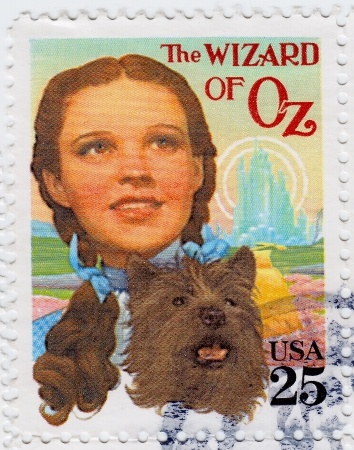In “The Wizard of Oz,” the Tin Man, the Scarecrow and the Lion have one thing in common. They believe what their inner critic tells them. They believe that little “voice” in their heads that tells them they are not courageous enough, smart enough or compassionate enough. I have one of those voices and I suspect you do too. At times, this inner critic can be annoying and other times it can be downright debilitating. Many of us are prone to believe the voice that says we’re not good enough. This may result in our not taking the steps, or the risks, that will lead to feeling fulfilled in our lives.
A recent Mayo Clinic article described the various types of “negative self-talk” this way:
- Filtering. You magnify the negative aspects of a situation and filter out all of the positive ones. For example, you had a great day at work. You completed your tasks ahead of time and were complimented for doing a speedy and thorough job. That evening, you focus only on your plan to do even more tasks and forget about the compliments you received.
- Personalizing. When something bad occurs, you automatically blame yourself. For example, you hear that an evening out with friends is canceled, and you assume that the change in plans is because no one wanted to be around you.
- Catastrophizing. You automatically anticipate the worst. The drive-through coffee shop gets your order wrong and you automatically think that the rest of your day will be a disaster.
- Polarizing. You see things only as either good or bad. There is no middle ground. You feel that you have to be perfect or you’re a total failure
Thinking back to the Tin Man, the Scarecrow and the Lion, they seem caught in at least a couple of these traps. However, the story ends well for these three characters,. How did they do it? With a little help from their friends, a lot of stepping out of their comfort zones and acting as if they did indeed have the qualities they originally thought they were missing.
There are many studies that support the idea that positive self-talk (or listening to your inner champion, rather than your inner critic) is good for your health and your success. There is evidence that as you let your inner champion take more control, you will build personal resources that broaden your attention and thinking. This will result in a more open attitude to new experiences and actions. Acknowledging your inner champion may also positively impact your optimism, resiliency, tranquility, mental health and personal relationships.
Who wouldn’t want improved health, success and less nagging from your inner critic? We are all capable of achieving these benefits with a little work.
- Turn the tables: When your inner critic speaks up, ask yourself what your inner champion (or best friend, 5 year old son, etc) might say. And have confidence that your inner champion is bigger, stronger and wiser than your critic. This activity can help put the topic in perspective: Even though the Wizard isn’t a wizard, he gave me a diploma because I am smart.
- Reframe: If your inner critic tells you that you’re too unorganized to get all your work assignments done, reframe this “accusation” in a more neutral way that states the truth and focuses on the possibilities: There are a lot of small flying monkeys around this castle. Nevertheless, we are here and determined to rescue Dorothy.
- Know your inner critic: Give this inner voice a name. Personifying it makes it less threatening; after all, it is just a voice in your head. I tell mine to go outside and sit in the “horse-crippler” cactus in the backyard when she is extra noisy.
- Focus on what’s important: Like the heroes in “Wizard of Oz,” if you stay focused on your personal values or mission when the inner critic gets noisy, that voice will likely fade into the background as you pursue what fulfills you.
As each of us seeks to live our life in the best way possible, our inner critic can get a little feisty. When it does, take your inspiration from the Tin Man, the Scarecrow and the Lion, who in the end acknowledged that they already had the special qualities that they needed and desired.





